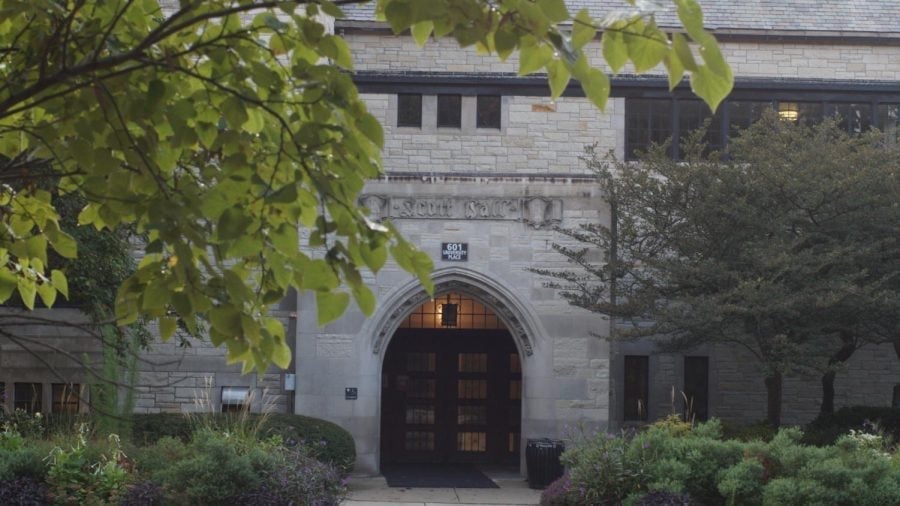Panel of professors and military experts discuss future of war in Ukraine
Daily file photo by Victoria Benefield
Scott Hall, home to the Guild Lounge. The “Ukraine: What Is to Come?” panel co-hosted by the political science department and Modern War Institute at West Point’s Irregular War Initiative.
November 18, 2022
Military experts and academics discussed potential developments with the war in Ukraine, including Western aid to the country and the potential use of weapons of mass destruction, in a Thursday panel at the Guild Lounge.
“What we are most fearful of is that (Russian President Vladimir Putin) would turn to — now that he’s not winning anymore — the use of tailored nuclear weapons,” panelist and Air Force active-duty officer Jesse Humpal (SPS ’15, Weinberg ’20, ’21) said.
Humpal was one of six panelists at the event, co-hosted by the political science department and the Modern War Institute at West Point’s Irregular Warfare Initiative.
Other panelists included University of California, San Diego political science professor Jesse Driscoll; Woodrow Wilson International Center’s Kennan Institute fellow Michael Kofman and Texas A&M University international affairs professor Alexandra Chinchilla.
Political science Prof. Will Reno moderated the event.
Some panelists, like Kofman, agreed that nuclear weapon use is possible but acknowledged other potential outcomes.
Kofman also laid out three potential directions for the war: nuclear escalation, a stalemate or an “unequivocal” victory for Ukraine. But it’s challenging to predict the future, he added.
“From my point of view, there’s a tremendous amount of uncertainty,” Kofman said. “It’s a real challenge when you think about the proposition of a country that’s forced to use nuclear weapons and the conditions that they will use them under.”
However, Driscoll said he believes it is very unlikely that Russia would use nuclear weapons against Ukraine. He said Russia has many options strategically to gain an upper hand on Ukraine before considering the use of nuclear weapons — but declined to specify what these options may look like.
Driscoll also said Russia may “like” that the war is contained to Ukraine, since casualties are largely concentrated in a single region. As a result, North Atlantic Treaty Organization countries will likely play a role in rebuilding Ukraine, Driscoll said.
“As long as (the conflict) stays contained in Ukraine, which is a central NATO goal, then (Russia) can just keep this going and eventually punt the cost of rebuilding onto future generations of alliance (NATO) taxpayers,” Driscoll said.
Panelists also discussed the future of aid from Western countries toward Ukraine. Driscoll said it is reasonable for Americans to expect European countries to “shoulder some of the burden” of paying for Ukrainian aid.
On a similar note, Kofman said other Western nations are reactionary in terms of aid, basing their decisions to contribute to the Ukrainian war effort on the United States’ choices.
The U.S. is currently the largest contributor of funds to the Ukrainian war effort, having contributed $27.4 billion in military aid between late January and early October. In second place, the United Kingdom contributed $3.7 billion during that same time period.
Chinchilla said Western support is “making the whole train drive” in Ukraine through intelligence sharing, remote military advising and economic and political support. She said recent indications that the U.S. may decrease its financial support for Ukraine are exactly what Russia is hoping for.
“If any of that U.S. resolve falters there, then Russia can really step up conventional punishment of Ukrainian cities,” Chinchilla said. “The war effort will not be as strong.”
Email: [email protected]
Twitter: @PavanAcharya02
Related Stories:
— Northwestern professors teach class about Ukraine’s fight for independence
— Feinberg students join TeleHelp Ukraine, a free medical consultation program for Ukrainians overseas


